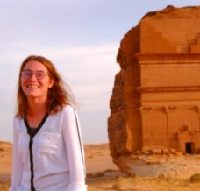2024-... | Permanent Researcher at CNRS, ThéMA laboratory
2022-2023 | Postdoctoral Research Fellow, School of Advanced Studies in the Social Sciences (EHESS), Center for Social Analysis and Mathematics (CNRS UMR 8557 CAMS), Center for Historical Studies (CNRS UMR 8558 CRH), French National Agency for Research, SoDUCo Project - 23 months
2020-2021 | Postdoctoral Research Fellow, Archaïos - Archaeology, Culture and Heritage Company, AlUla Cultural Oasis Project (FR/KSA) - 14.5 months
2019-2020 | Postdoctoral Research Fellow, Territorial and Spatial Dynamics Laboratory of Excellence, University of Paris 1, Géographie-cités laboratory (CNRS UMR 8504) - 13 months
2019 | Design Engineer, School of Advanced Studies in the Social Sciences (EHESS), France-Japan Fondation - 3 months
2018-2019 | Lecturer, CY Cergy University, Department of Geography - 12 months
2018-2019 | Lecturer, University of Paris 1 - Panthéon-Sorbonne, Department of Geography and Planning - 12 months
2014-2017 | Temporary Teaching Assistant, University of Paris 1 - Panthéon-Sorbonne, Department of Geography and Planning, Deparment of Archaeology
2013-2014 | Design Engineer, CNRS, French National Agency for Research, TransMonDyn Project - 13 months

